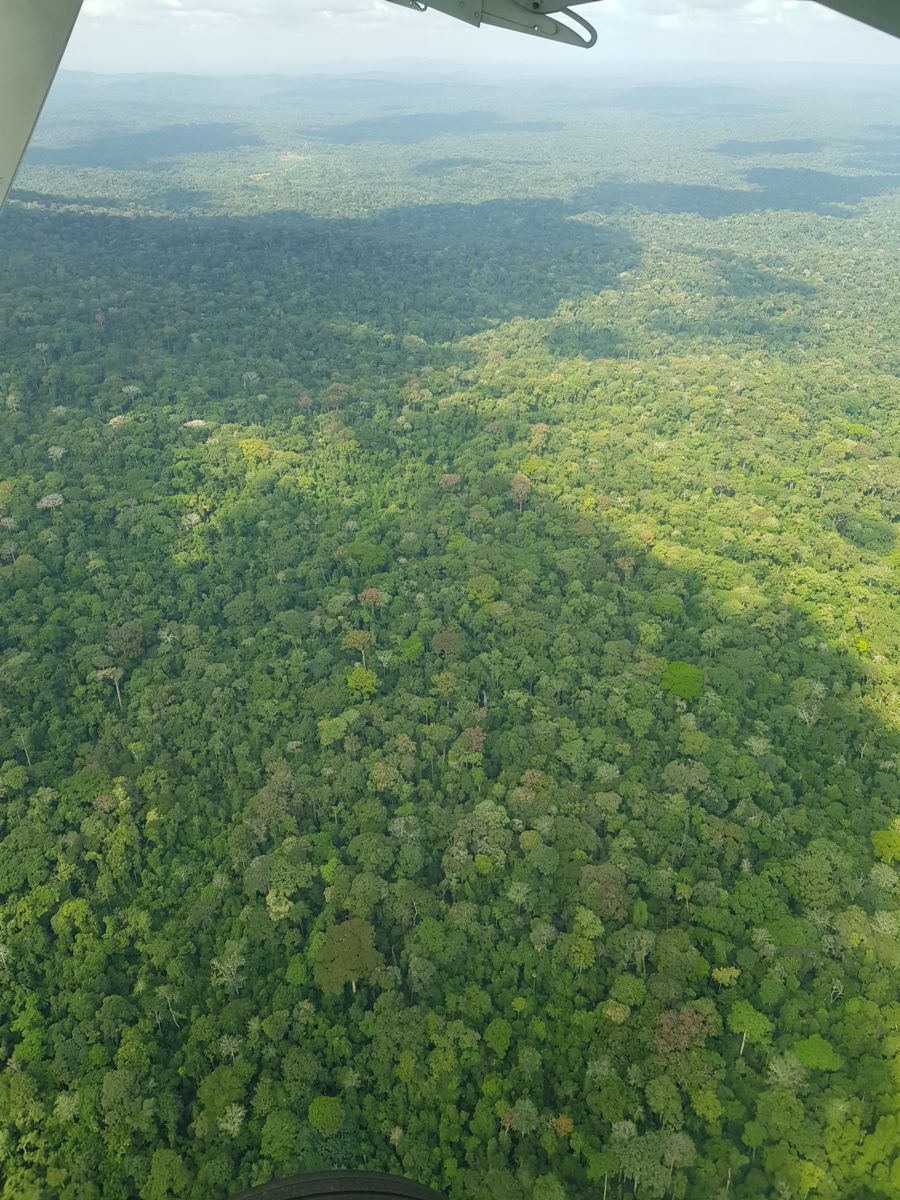▼ Commitments | Certification | Legality | Employees | Local communities | Research | Biosystems | Carbon
.png)
Our sustainability commitments
At Precious Woods we are convinced that only the best management practices are good enough to ensure the sustainable use of our world's forests. All of our forestry activities, our industrial operations, and our trading activities are assessed and recognised by the two most demanding standards for forestry certification. We are thus fully committed to all aspects of sustainability.
The responsibility for all questions of sustainability is with the Board of Directors of Precious Woods Holding Ltd. in Switzerland. The Board of Directors defines the targets and actions to fulfil and guarantee the highest sustainability standards within the entire group over the long term. The Board of Directors has the support of a Sounding Board of specialists coming from research institutions, NGOs, and other organisations.
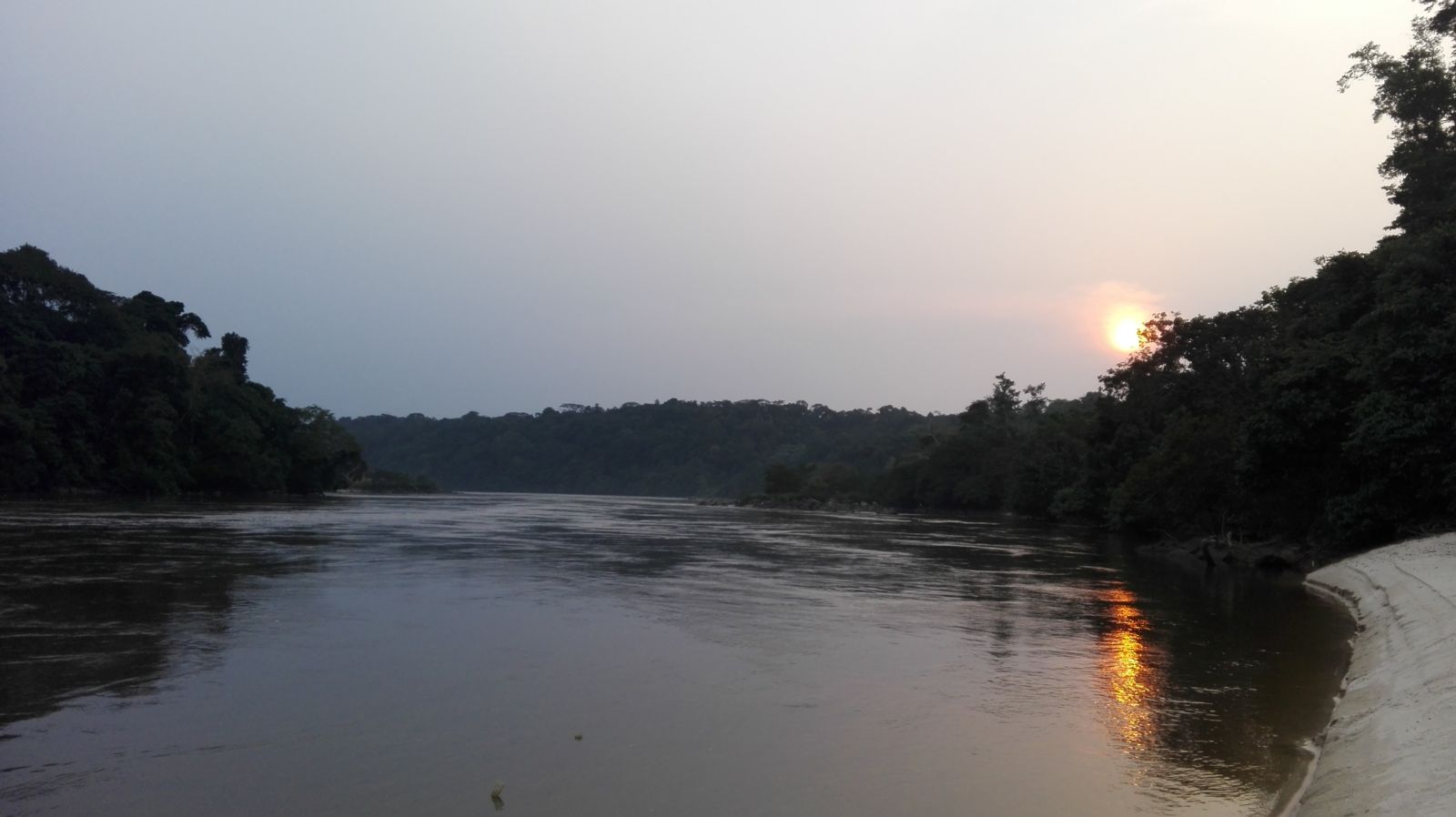
Certification and sustainability
Precious Woods is a pioneer in sustainable forest management and forest certification. All of our forest operations are 100% FSC and PEFC certified. We manage a total of 1 100 000 ha of tropical rainforests under this dual certification. Our sawmills and veneer plants are 100% FSC Chain of Custody (CoC) certified, and we process only wood harvested in our own certified forests. Our wood trade is also 100% FSC-CoC certified and only trades wood from verified legal and sustainable sources.
Forest management certification is not only about environmental sustainability, however, but also encompasses all aspects of social and economic sustainability. We believe in this holistic approach as the best and only way to achieve full and comprehensive sustainability.
Certification and sustainability go hand in hand, but they also demand continuous monitoring, training, and further development. Our sustainability and certification managers in Brazil and Gabon and their teams work hard every day to strengthen the position of Precious Woods as a pioneer in sustainable and certified tropical rainforest management.
We believe that sustainability cannot be limited to our own company, however, and we make sure that our suppliers also meet our criteria for sustainable action.
Certification and sustainability are important not only to our business success – most of all, they are an essential building block of our DNA. We are therefore fully committed to the principle of sustainability and to forestry and CoC certification.
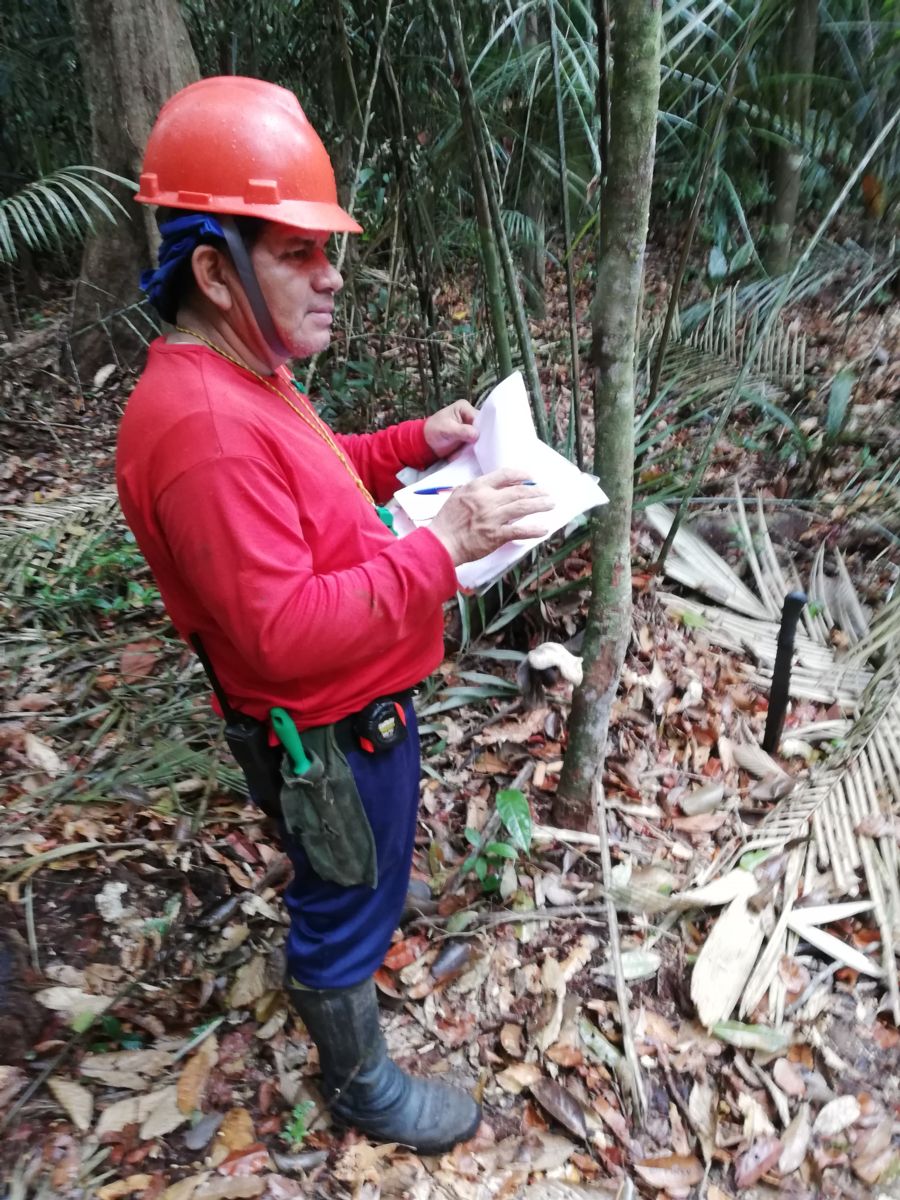
As a certified company, Precious Woods is committed to respecting national and international law. Acting in conformity with the legislation of our host countries is a matter of course. It is also imperative that we comply with international law and international conventions. These include the Universal Declaration of Human Rights, the rules of the World Health Organization (WHO) and the International Labour Organization (ILO), the Convention on International Trade in Endangered Species of Wild Fauna and Flora (CITES), and the Stockholm and Rotterdam Conventions.
Fair and equal employment opportunities and no tolerance towards discrimination or harassment are integral to our business ethics. We notably commit to not engaging in any form of child labour and forced or compulsory labour, as well as to ensure that freedom of association and right to collective bargaining is respected.
We believe that ethical and sustainable action is possible only if all business processes are fair, transparent, and free of any corruption and bribery.
We highly value our host countries, their citizens, and all international organisations advocating for the welfare of human beings. We are therefore fully committed to complying with national and international law as well as our anti-corruption policies at all times.
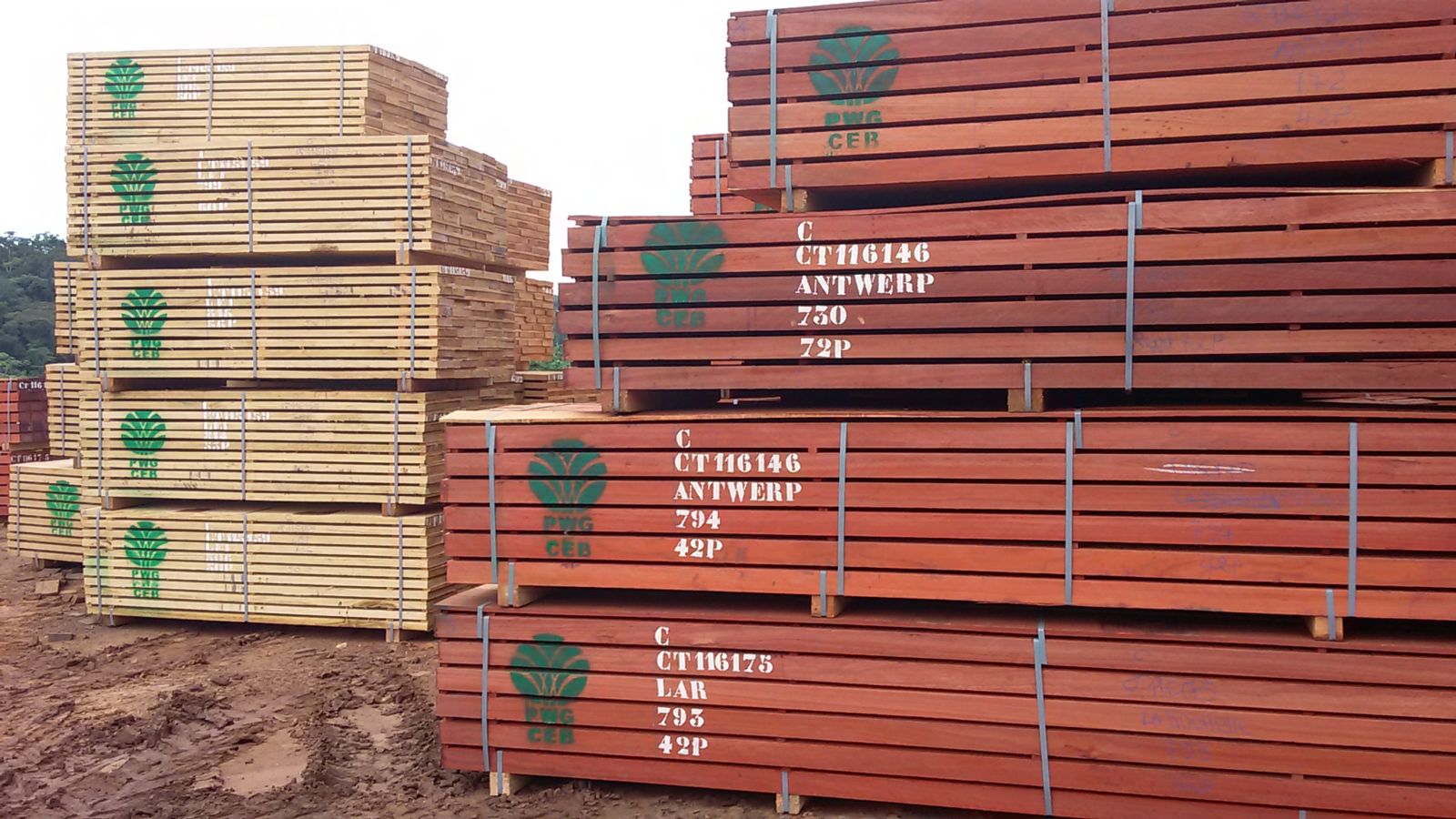
Precious Woods employs around 1 300 people in Brazil, Gabon, and Switzerland. It goes without saying that we fully respect human rights as well as national and international labour and workers' rights in all our relations with our employees. Paying salaries above the national minimum wage, offering continuous training, and providing safety equipment for all employees are integral parts of our corporate social responsibility. To guarantee the well-being of our employees, we also comply with the ILO Code of Practice on Safety and Health in Forestry Work.
When operating in remote areas, we ensure health care, food, residential housing construction, and cultural offerings for our employees and their families.
Our employees are our most valuable capital. We are therefore fully committed to the rights of our employees, their basic and continuing training, and appropriate occupational health and safety.
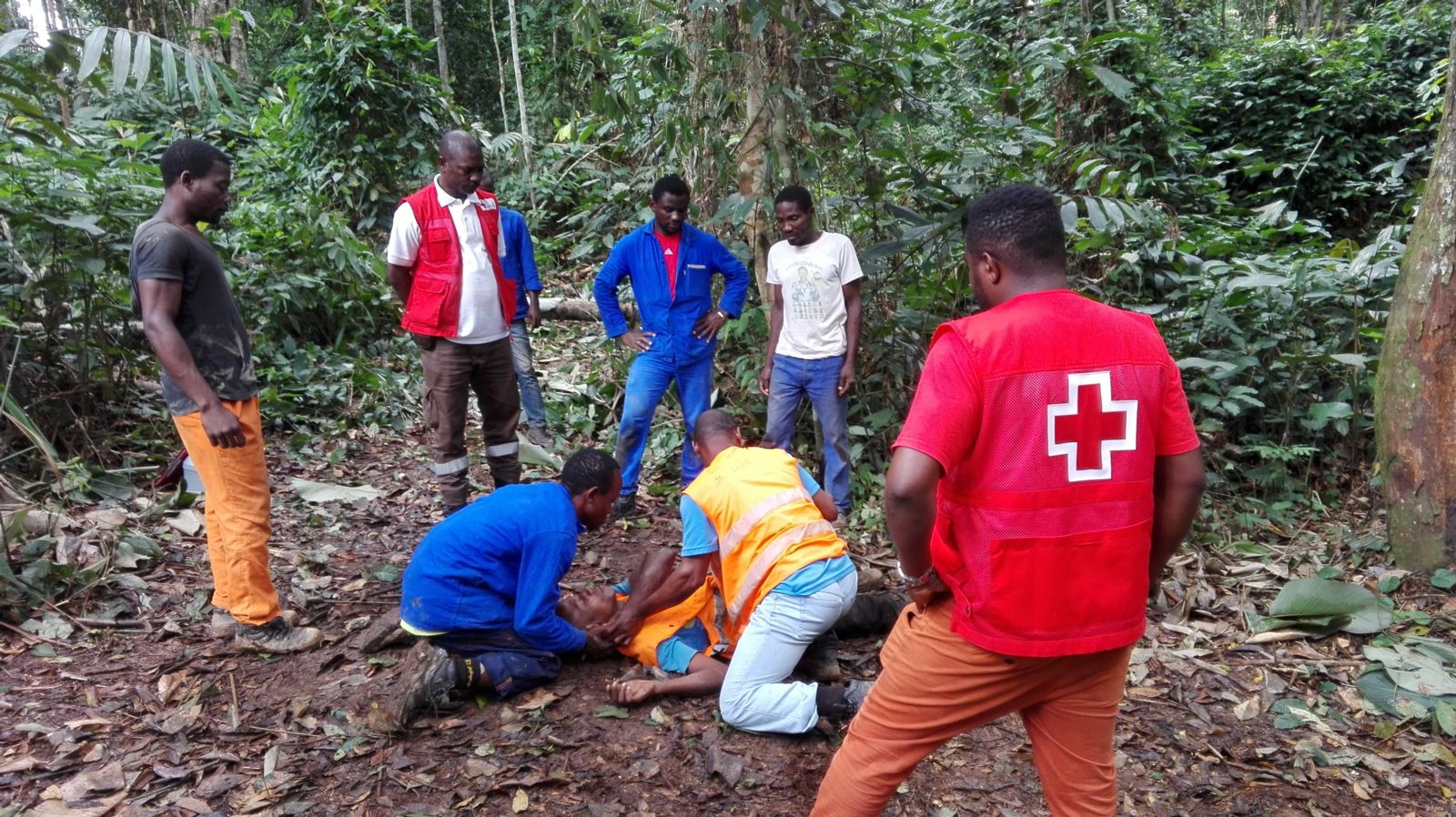
Local communities and business ethics
Precious Woods operates in forests that have been used by local communities under customary law for a very long time. Respecting these communities' rights is an indispensable part of our business ethics, whether they are local customary rights or universal human rights. Our strict guidelines guarantee that all decisions by local communities in connection with our business activities are taken freely, with the right information, and on the basis of prior consultation (FPIC – Free, Prior and Informed Consent).
Local communities are valuable partners for us. We are therefore fully committed to the rights of local communities and to the principles of FPIC.

Research and public-private partnerships
Precious Woods believes that steady progress through research is the best way to make sustainable forest management the only viable business model for forestry, today and in the future.
Cooperation with public authorities and research institutions is our key to realistic, practical, and implementable solutions. Thanks to our open cooperation with forest authorities and environmental agencies, we consider them to be partners more than regulatory authorities. Our close ties to national and international research institutions allow everyone involved to carry out research close to practice at our sites and also facilitate valuable exchanges between the private sector and public institutions. We work closely together with numerous partners, including the World Conservation Society (WCS), the University of Science and Technology of Masuku (USTM), the Federal University of Amazonas (UFAM), Gembloux Agro-Bio Tech (ULiège), Nature+, and the Bern University of Applied Sciences (BFH-HAFL)
We believe only the newest and best research methods and outcomes can strengthen the importance of sustainable forest management. We are therefore fully committed to research cooperation with public authorities and research institutions.
Biosystems and high conservation value areas
Precious Woods operates in extremely complex biosystems. The sustainable use and protection of these biosystems is a crucial aspect of our daily work. For us, preserving the forest area and avoiding deforestation at all costs are the basis of sustainable forest management.
We emphasise our fundamental attitude that biodiversity conservation is crucial in both protected and production forests. This unambiguously includes the protection of flora and fauna covered by national and international law, such as CITES. In production forests, we always use reduced impact logging methods to avoid damage to the biosystem. We also reduce the impact of forest roads using anticipatory planning approaches and low impact methods, as well as by minimising road lengths and widths.
Soils, in particular peats and swamps, are one of the most vulnerable parts of an ecosystem. Ensuring their preservation is critical for flora regeneration and thus for the sustainability of the entire forest ecosystem. It is therefore a key responsibility of our foresters and foremen to protect the soil through deliberate and error-free planning of road construction and timber harvesting on a daily basis. In doing so, they limit the length and width of roads and skid trails and accordingly their impact on the soils in our forests.
High conservation value (HCV) areas and other protection areas are an integral component of all the major certification schemes. We believe in the importance of HCV areas and that an appropriate proportion of each forest should be put under full protection. For that reason, we have identified a total of 70 300 ha or 6% of our managed forests as HCV, completely excluding them from forestry activities.
Non-timber forest products (NTFPs) are a source of income for the local population and may become an important economic factor in the future. To ensure the social, environmental, and economic sustainability of NTFPs, the same management principles as for wood production must be applied. We therefore observe the use of NTFPs in our areas and support research on the sustainable use of NTFPs.
The 1 100 000 ha of forests under our management are located in remote areas and accessible for local communities. However, it cannot be ruled out that people with criminal intention, such as poaching or illegal logging, might also try to enter our forests. To prevent such negative impacts, we block access to our forests at all entry points and constantly patrol our forests, wherever possible in cooperation with public authorities and representatives of local communities.
We are aware that forests are under substantial pressure worldwide. As an owner and concession holder of tropical rainforests, we are responsible for preventing and mitigating negative impacts on our forests. We are therefore fully committed to the preservation of our forests' biodiversity and to the HCV principles.
Precious Woods sustainably manages large forest areas, which also means managing an enormous carbon sink with a permanent stock of about 330 million tonnes of carbon. We work in remote areas that are not connected to the electricity grid, but where we operate our own production units. In Brazil, we produce our own energy in a biomass power plant using our own biomass. Forest management in Brazil and Gabon does, however, depend heavily on fossil fuels. We therefore believe that reducing CO2 emissions from fossil fuels is crucial from the standpoint of environmental and economic sustainability.
The unavoidable use of heavy machinery and the processing and treatment of our wood requires the use of chemical products at certain points in the production process. One of our declared goals is to avoid the use of chemicals to the extent possible and to reduce it to an absolute minimum. It goes without saying that whenever using chemicals, we fully comply with the guidelines of our certification schemes as well as the WHO guidelines and the Stockholm and Rotterdam Conventions.
The release of carbon dioxide and chemicals is a global problem. We are fully committed to reducing our carbon emissions and our use of chemicals as one of our main goals.
